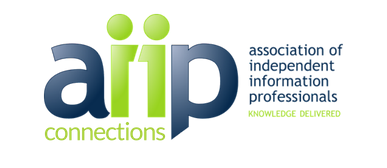Proving, Not Talking About, Your Value

One mistake made by many infopreneurs when they start their businesses is thinking that we need to sell ourselves, our capabilities, and our services to prospective clients. We assume that, when a prospect calls us to discuss a project, our job is to convince the caller that we are the best person for the job and that we are worth what we are charging for our services. When I was first introducing myself to the market, I would emphasize my years as a library manager, my graduate degree, and membership in AIIP as being indicators of my value.
What changed my approach over the years was noticing how prospective clients responded when I rattled off my resumé; either their eyes glazed over or they had a quizzical look on their face, wondering why I was nattering on about my master’s degree. Through trial and error, I realized that my resumé qualifications, while impressive, didn’t convey what was important to a client. They don’t need to be reassured that I have the right background and experience for the project; they take it as a given that I’m competent. Rather, they want to know that, in addition to my background as an information professional, I am committed to ensuring that my clients receive what they need in order to make a strategic decision or achieve a goal. And, unlike rattling off the year of my diploma or the number of years managing libraries, assuring clients that I care about their outcome requires more than just saying those words.
The key to effectively communicating your value lies in conducting a thorough interview, one we former librarians call the reference interview. This crucial step allows you to deeply understand your clients’ needs, challenges, and desired outcomes. By asking probing questions and actively listening, you demonstrate your commitment to their success and your ability to tailor your services to their specific situation.
A well-executed reference interview serves multiple purposes:
It shows that you’re focused on client needs, not just on selling your services.
It helps you gather the information necessary to craft a targeted, value-driven proposal.
It establishes trust by demonstrating your expertise and genuine interest in client challenges.
Remember, it’s our job to sell, not the client’s job to buy. If a potential client says, “I don’t understand why I should use you” or “You’re too expensive,” it’s our responsibility to find a more effective value message. Instead of becoming defensive or giving up, view these objections as opportunities to delve deeper into the client’s needs and better articulate how your services align with relevant goals.
When faced with such objections, consider these strategies:
Reframe the conversation: Shift the focus from cost to return on investment. Help the client understand how your services will save time, money, or resources in the long run.
Provide concrete examples: Share case studies or anonymized examples of how you’ve helped similar clients achieve their objectives. This tangible evidence of your value is far more compelling than a list of qualifications.
Offer a scalable solution: If budget is a concern, consider proposing a smaller initial project that allows you to demonstrate your value with minimal risk to the client.
Emphasize your unique approach: Highlight what sets you apart from other professionals. This could be your specialized knowledge, innovative methodologies, or track record of success in the client’s industry.
I have written previously about the importance of showing, not telling, clients what you do. (https://www.batesinfo.com/reluctant-entrepreneur/how-to-talk-about-price/). This principle applies not only to your marketing materials but also to your interactions with potential clients. Instead of simply claiming expertise, demonstrate it through your questions, insights, and proposed solutions.
For example, rather than stating, “I have extensive experience in market research,” you might say, “Based on what you’ve told me about your expansion plans, I’d recommend focusing our research on these three key areas, which have proven crucial for similar companies entering new markets.”
By proving your value through action and results, rather than relying on credentials alone, you position yourself as a strategic partner rather than just a service provider. This approach sets the stage for long-term, mutually beneficial relationships with your clients.
For infopreneurs, success hinges on our ability to clearly communicate and demonstrate value. By mastering the art of the reference interview, addressing objections proactively, and consistently showing (not just telling) our worth, we can build thriving businesses that truly serve our clients’ needs.
—–
Mary Ellen Bates has been an infopreneur since 1991. In addition to her business analysis services, she offers free strategic coaching to new and long-time solopreneurs. See more at Reluctant-Entrepreneur.com or contact her at mbates@batesinfo.com or +1 303 772 7095.





